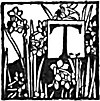The Boston Symphony Orchestra
And Its Founder Henry Lee Higginson
By Richard Aldrich
 he Boston Symphony Orchestra is Mr. Henry L. Higginson’s yacht, his racing-stable, his library and his art gallery, or it takes the place of what these things are to other men of wealth with other tastes. It is a remark that he himself once made in disavowing any philanthropic ends when he set up in the city of Boston a musical organization that has few peers in the world of music anywhere. And though few will be persuaded to accept his disavowal as a complete expression of the case, it is true that Mr. Higginson has found in the establishment, the upbuilding, and the maintenance of a consummate artistic institution the keen personal delight that other men take in perfecting a collection or pursuing supremacy in a sport. If horse-racing is the sport of kings, there is also something regal, even imperial, in the possession of an orchestra. Kings had their court bands for their courtly pleasure a century and two centuries ago—bands which, in continental Europe, have evolved into royally endowed artistic establishments for the benefit of the people; and even into the nineteenth century the splendid Austrian princes, upon whom a fine old crust of feudalism lingered later than upon any others of the anointed, maintained for their own delectation, in their own palaces, great orchestras and great composers, whereof Joseph Haydn, serving the house of Esterházy as a liveried menial, is the classical exemplar. Mr. Higginson’s orchestra, whatever he may declare as to his own motives, has been for twenty-three years as much for the benefit of his townsmen as for himself; and, in a way by no means indirect, for the benefit of his countrymen.
he Boston Symphony Orchestra is Mr. Henry L. Higginson’s yacht, his racing-stable, his library and his art gallery, or it takes the place of what these things are to other men of wealth with other tastes. It is a remark that he himself once made in disavowing any philanthropic ends when he set up in the city of Boston a musical organization that has few peers in the world of music anywhere. And though few will be persuaded to accept his disavowal as a complete expression of the case, it is true that Mr. Higginson has found in the establishment, the upbuilding, and the maintenance of a consummate artistic institution the keen personal delight that other men take in perfecting a collection or pursuing supremacy in a sport. If horse-racing is the sport of kings, there is also something regal, even imperial, in the possession of an orchestra. Kings had their court bands for their courtly pleasure a century and two centuries ago—bands which, in continental Europe, have evolved into royally endowed artistic establishments for the benefit of the people; and even into the nineteenth century the splendid Austrian princes, upon whom a fine old crust of feudalism lingered later than upon any others of the anointed, maintained for their own delectation, in their own palaces, great orchestras and great composers, whereof Joseph Haydn, serving the house of Esterházy as a liveried menial, is the classical exemplar. Mr. Higginson’s orchestra, whatever he may declare as to his own motives, has been for twenty-three years as much for the benefit of his townsmen as for himself; and, in a way by no means indirect, for the benefit of his countrymen.
Henry L. Higginson, born in New York, but brought up in Boston as a scion of a Boston family socially and intellectually most distinguished, passed in his youth through the days of the Germania Orchestra and the Harvard Musical Association and the other local institutions that decorated the town with the epithet of “musical,” and that contributed in large measure to that connotation of “culture” still inseparable from its name. The young Higginson, no doubt, like the good Bostonian he has always been, thought these things were all they should be or could be, till he was sent to Vienna to complete his education.
There he saw a great light. He associated much with musicians and musical amateurs, and heard what orchestral playing might be at the hands of accomplished musicians constantly in training under great conductors. Then and there he formed the resolution that when his time came he would give to Boston an orchestra on a higher plane than all its culture had ever known; an orchestra the members of which should not be summoned to its service upon occasion from other pursuits, but whose business should be its business; an orchestra that should not be dependent upon the caprice of the public, or limited in its scope by the conservatism of a clique.
His time came in the midst of a successful business career, when, moreover, Boston was ripe for the experiment he intended to try. The old Harvard Musical
585

